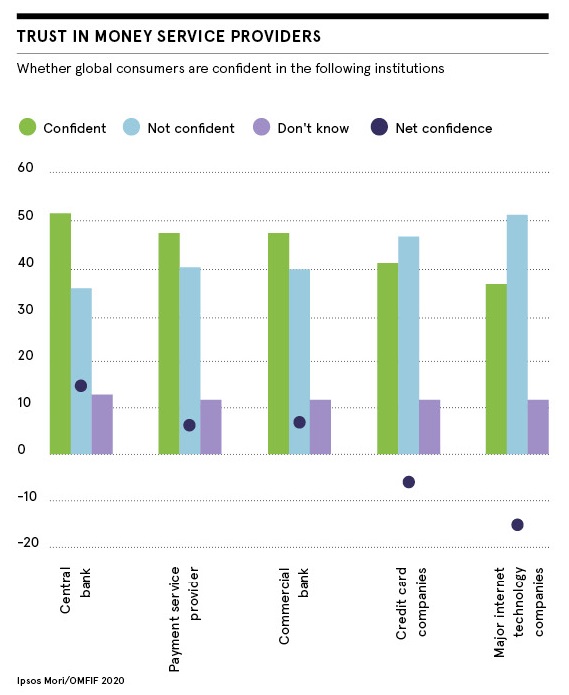When Facebook announced plans last year to create its own digital currency, called libra, it was only a matter of time before lawmakers, already riled by the Cambridge Analytica scandal, would push back.
Appearing before Congress in October, Facebook founder and chief executive Mark Zuckerberg laid out his pitch for libra: while politicians in the United States sat around debating the issue, the rest of the world wasn’t waiting. China, he warned, was already moving quickly to launch a similar idea. The ability to shape the future of cryptocurrency, and by extension preserving America’s global financial leadership, was at stake.

Mark Zuckerberg testifying before the House Financial Services Committee last October about Facebook’s plans for libra
Facebook’s proposal of a global digital currency, backed by a reserve of real assets including US dollars, could bring financial services to the 1.7 billion people around the world without access to a bank account.
Lawmakers have been reluctant to get on board. In early-March, Bloomberg reported that Facebook and the Libra Association, a group of private companies supporting the project, were rethinking the idea, potentially turning libra into a payments platform, which multiple coin issuers could use.
“They started out very ambitious and they’ve just slowly scaled back,” says Meltem Demirors, chief strategy officer at CoinShares, a digital asset management firm. “This is a very long game and they need a starting point. Facebook has spent a lot of money and a lot of resources on this initiative; they need to get something off the ground, so for them this is the most logical starting point.”
It was not just lawmakers getting worked up about Facebook’s digital currency plans. Many central banks around the world were also spooked into action. A January survey from the Bank for International Settlements showed that the number of central banks planning to roll out a digital currency in the short term had shot up to one in ten from one in twenty a year earlier.
“Central banks wouldn’t be having this conversation if it wasn’t for libra,” says Jahon Jamali, managing partner at Sarson Funds, a cryptocurrency and blockchain financial adviser. “Libra’s plans really served as a welcome wake-up call.”
Central bank concerns
A reason some central bankers are nervous is because it is slow and expensive to send money across borders through existing payment mechanisms. Facebook’s digital currency would potentially change that by allowing users to send tokens instantly, anywhere in the world. If people stopped using their domestic currencies in favour of libra, it could challenge the sovereignty of their own financial systems.
“What libra and other innovations offer is efficient international payments, but also global reach and that is quite alarming because, if it could become an equivalent payment system, it could reduce the efficacy of central bank monetary policy and it could bring problems for financial stability too,” says Gabriela Guibourg, economist and head of analysis and policy in the payments department of Sweden’s Riksbank, the country’s central bank.
Central banks wouldn’t be having this conversation if it wasn’t for libra. Libra’s plans really served as a welcome wake-up call
Sweden is one of a handful of countries currently developing their own digital currencies. Uruguay and the Bahamas both have projects in advanced stages, but it is China with its plan to issue a digital yuan that could have the biggest impact.
Ashley Ebersole, partner at law firm Bryan Cave Leighton Paisner, says you can divide central banks that are thinking about cryptocurrencies into two camps.
“One is countries that recognise the fallibility of physical fiat currencies: they wear out, they have built-in transaction costs,” he says. “So countries like this have experiments to supplement their fiat currencies with digital currencies with the thought that maybe they will move further in that direction. Then there are other places that say we see this coming and we don’t want to be left behind.”
Crypto world response
But what does Facebook’s reported change of focus potentially mean for the future of cryptocurrency? Not much, says David Pelleg, professor of finance and digital currency, at Kent State University in Ohio.
“If Facebook said libra coin has failed, that doesn’t change anything about the outlook for digital currencies,” he says. “I don’t know which digital currency will be successful, but there will be a digital currency that will be widely adopted which will allow for billions of micro-payments at a really low price.”

Some critics of the project also claim Facebook’s digital currency is not a true cryptocurrency because it would be controlled by a consortium of private companies.
This argument is shortsighted, says Jamali. “We’re not going to have mass adoption of cryptocurrencies unless everyday folks start using them and libra, however it plays out, could be a great asset to support the adoption and normalisation of digital currencies,” he says.
Digital currency experts are also sceptical that it will be central banks which drive adoption and dictate the future of cryptocurrency.
“We get a lot of tourists who visit bitcoin land and blockchain land,” says Demirors. “We had this in 2017 when every corporation wanted to put everything on a blockchain. That hasn’t really materialised and the same thing is now happening with central banks.”
One thing that could ultimately put some central banks off is the cost. “If you’re using distributed ledger technology, then the computing power needed to do that is just massive,” says Ebersole. “You might say if anyone is going to do that then a central bank could do it, but if you’re talking about expanding this to any kind of scale, it just gets massively expensive.”

Central bank concerns
Central banks wouldn’t be having this conversation if it wasn’t for libra. Libra’s plans really served as a welcome wake-up call
